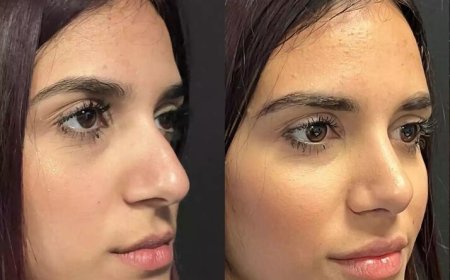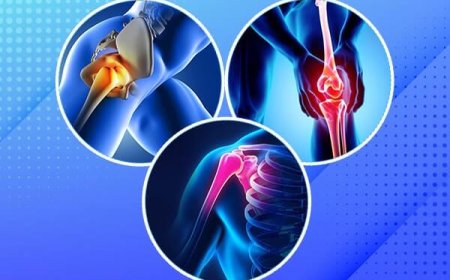Erectile Dysfunction: What It Is and How You Can Overcome It
Erectile Dysfunction (ED) is one of the most common sexual health issues affecting men today. It can be a source of deep frustration, shame, and relationship strain.

Erectile dysfunction (ED) is more common than many men are willing to admit. Affecting millions worldwide, its a condition that can bring feelings of embarrassment, frustration, and even anxiety. But ED is not a life sentence. With the right understanding, lifestyle changes, and treatments, men can regain control and enjoy a fulfilling sex life once again. If you have to treat erectile dysfunction, use Cenforce 100 blue pill, Buy Cenforce 150, and Buy Cenforce 200.
What Is Erectile Dysfunction?
Erectile dysfunction is the persistent inability to achieve or maintain an erection firm enough for satisfactory sexual performance. While its normal to occasionally have trouble getting or keeping an erection, ED is diagnosed when this problem occurs frequently, often for weeks or months.
ED isnt just about the physical act of getting an erection; it can affect a man's confidence, self-esteem, relationships, and overall mental health. It's a sensitive topic, but addressing it is crucial to both personal well-being and intimate relationships.
Common Causes of Erectile Dysfunction
ED can stem from a wide range of physical, psychological, and lifestyle factors. Often, it's a combination of several. Here's a breakdown of the most common causes:
1. Physical (Organic) Causes
-
Cardiovascular disease: Poor blood flow due to narrowed or hardened arteries can restrict blood to the penis.
-
Diabetes: Damages nerves and blood vessels, making it harder to maintain an erection.
-
High blood pressure: Can damage arteries and reduce blood flow to the penis.
-
Obesity: Linked with hormonal imbalances and other health conditions.
-
Low testosterone: Hormonal deficiencies affect sex drive and performance.
-
Neurological disorders: Conditions like Parkinsons or multiple sclerosis affect nerve signals.
2. Psychological Causes
-
Depression and anxiety: Mental health plays a major role in sexual performance.
-
Stress: Work, finances, or personal life stress can interfere with libido.
-
Relationship issues: Emotional disconnect can make physical intimacy difficult.
3. Lifestyle Factors
-
Smoking: Damages blood vessels and reduces blood flow.
-
Alcohol abuse: Impairs the nervous system and hormonal levels.
-
Drug use: Recreational drugs can interfere with brain signals related to arousal.
-
Lack of exercise: A sedentary lifestyle leads to obesity and reduced circulation.
Signs and Symptoms of ED
While the most obvious symptom is difficulty getting or keeping an erection, ED can also manifest in other ways:
-
Reduced sexual desire
-
Less frequent erections (especially during sleep)
-
Increased anxiety or stress related to performance
-
Difficulty achieving orgasm
Its essential to recognize these signs early and speak with a doctor to identify the root cause.
Diagnosis and Evaluation
If you're experiencing symptoms of ED, the first step is an honest conversation with your healthcare provider. Diagnosis typically involves:
-
Medical history review: Includes health conditions, medications, and lifestyle factors.
-
Physical exam: To check for signs of hormonal problems or nerve damage.
-
Blood tests: To assess testosterone levels, blood sugar, cholesterol, and other markers.
-
Urine tests: To rule out diabetes or infections.
-
Ultrasound: Checks blood flow to the penis using a Doppler device.
-
Psychological evaluation: To determine if mental health factors are contributing.
Treatment Options for Erectile Dysfunction
Fortunately, ED is treatable. Depending on the underlying cause, your doctor may recommend one or more of the following treatments:
1. Oral Medications
These are the most commonly prescribed treatments for ED and include:
-
Sildenafil (Viagra, Fildena)
-
Tadalafil (Cialis)
-
Vardenafil (Levitra)
-
Avanafil (Stendra)
These drugs enhance the effects of nitric oxide, which increases blood flow to the penis. They work best when taken before sexual activity and require sexual stimulation to be effective.
2. Lifestyle Changes
Adopting healthy habits can dramatically improve ED:
-
Regular exercise: Improves blood flow and boosts testosterone.
-
Healthy diet: Focus on whole foods, fruits, vegetables, and lean proteins.
-
Quit smoking: Restores vascular health and enhances circulation.
-
Reduce alcohol: Keeps hormone levels balanced and reduces nerve damage.
-
Lose weight: Reduces pressure on blood vessels and improves overall health.
3. Psychological Counseling
If ED is caused by anxiety, stress, or relationship problems, therapy can be effective. Cognitive-behavioral therapy (CBT) helps men manage anxiety and change negative thought patterns.
Couples therapy can also be helpful if relationship issues are contributing to the problem.
4. Vacuum Erection Devices (VEDs)
These devices use suction to draw blood into the penis. A band is then placed at the base to maintain the erection. They're effective for many men who prefer a non-drug option.
5. Penile Injections or Suppositories
Alprostadil is a medication injected directly into the penis or inserted as a suppository. It works by dilating blood vessels to allow increased blood flow.
6. Penile Implants
For men who do not respond to other treatments, a surgical option is available. Penile implants are prosthetic devices that allow men to control when and how long they have an erection.
Natural Remedies and Supplements
Some men prefer to try natural approaches, although results vary. Always consult a doctor before trying any supplement.
-
L-arginine: An amino acid that may improve blood flow.
-
Panax ginseng: Known as herbal Viagra.
-
Yohimbine: Derived from a tree bark, but may have side effects.
-
Horny goat weed: A traditional Chinese herb with mild effects.
Preventing Erectile Dysfunction
While not all causes of ED are preventable, you can reduce your risk with healthy habits:
-
Eat a balanced diet
-
Stay physically active
-
Manage blood pressure and cholesterol.
-
Control diabetes
-
Get regular sleep
-
Avoid smoking and excess alcohol.
-
Manage stress
Regular health checkups can also catch early signs of problems that may lead to ED.
Conclusion
Erectile dysfunction is nothing to be ashamed of. Its a medical condition that affects millions of menand its highly treatable. Whether its caused by stress, health problems, or lifestyle habits, ED doesnt have to control your life.
Through a combination of medical treatments, healthy living, open communication, and self-care, men can overcome ED and regain confidence in their sexual health.
If you're struggling with erectile dysfunction, take that first step today. Talk to your doctor, seek support, and know that you're not alonesolutions are available, and a better quality of life is within reach.





























